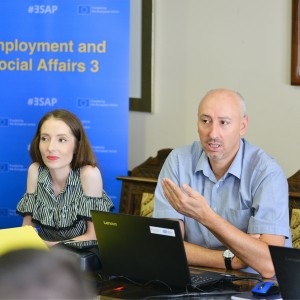RCC Secretary General on The Occasion of Labour Day: How to Mark this Holiday, with more Persons Employed in the Western Balkans and Fewer Abroad?

RCC Secretary General Majlinda Bregu on the occasion of Labour Day (Photo: RCC)
Sarajevo – May 1st brings workers around the Western Balkans and the world a well-deserved break from work, but also reminds us of ongoing battles for improved working conditions, brain drain, long-term unemployment and undeclared work.
„Employment rates in the Western Balkans have reached a record high of 60.5% in 2023, and while this figure evokes optimism, one needs to be careful about the reasons behind it,“ the RCC Secretary General Majlinda Bregu said opening the video on the occasion of May 1st, the Labour Day.
Gender disparities in the regional employment rates still exist, with 15% less women employed then men. Challenges such as long-term unemployment, undeclared work, alongside troubling emigration and brain drain trends persist.
„One-fifth of the Western Balkans population lives abroad, while according to the latest RCC’s Balkan Barometer data, 71% of our youngsters consider leaving their home and moving abroad,“ Bregu added.
Many reasons account for the rapid departure of citizens from the region: from lower living standards compared to those in destination countries, to poor social protection and high levels of corruption. According to Balkan Barometer, policies aiming to retain the region’s labour force grow popularity among the Western Balkan businesses as they measure a record support of 70%, a 24 points growth since 2021. While 40% of domestic businesses would much prefer workers from the Western Balkans, they reach out to third countries, importing skilled workers to fill their vacant positions, and the quota for issuing working permits is higher every year in the economies in the region.
“Given these worrisome realities, the question arises: How can next year’s Labour Day be marked with more people working in the region, and less abroad,” concluded Bregu.
Watch the full video here.





